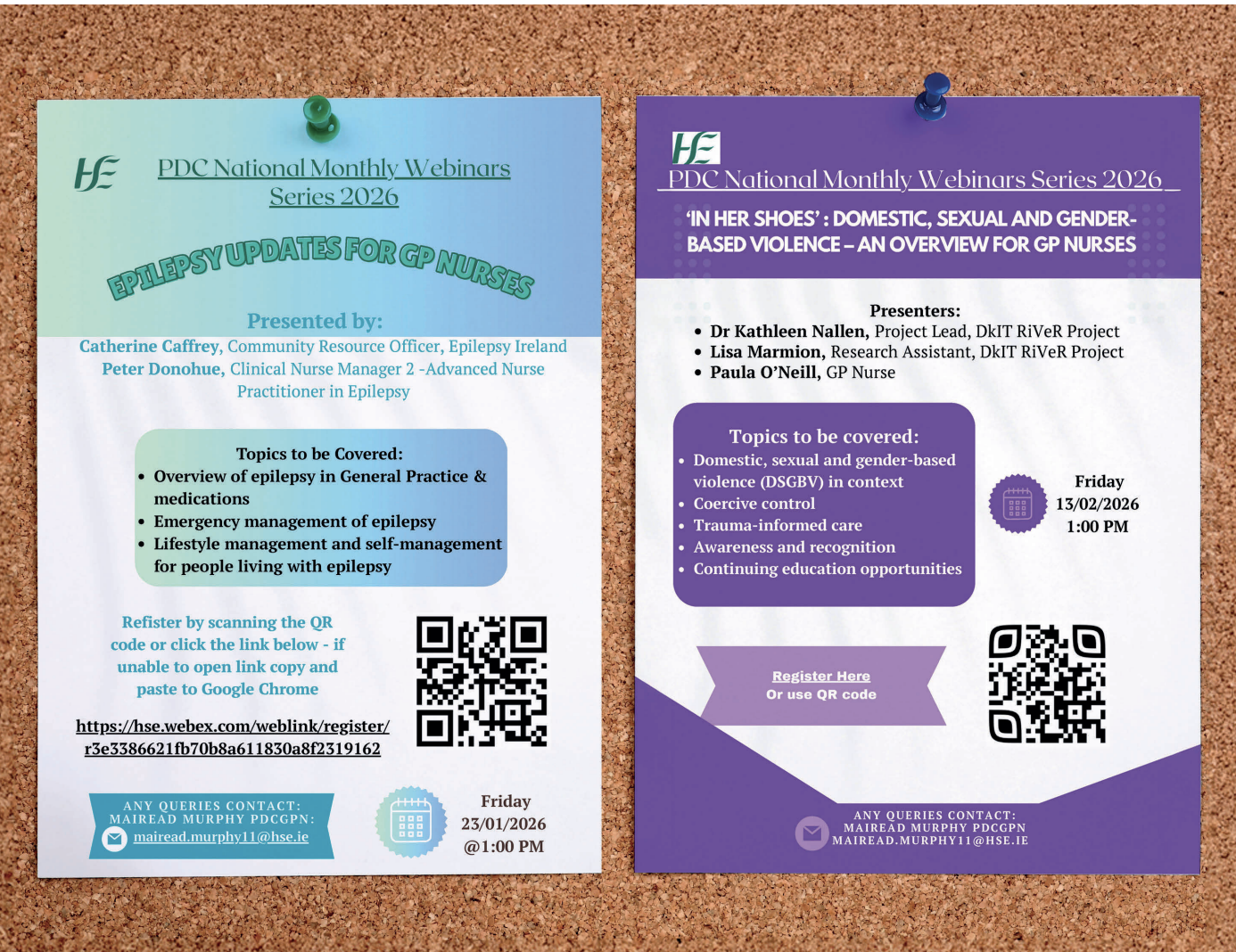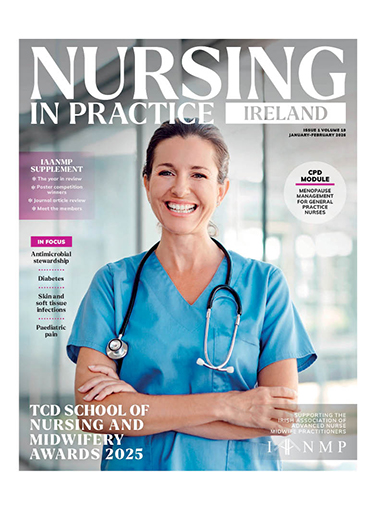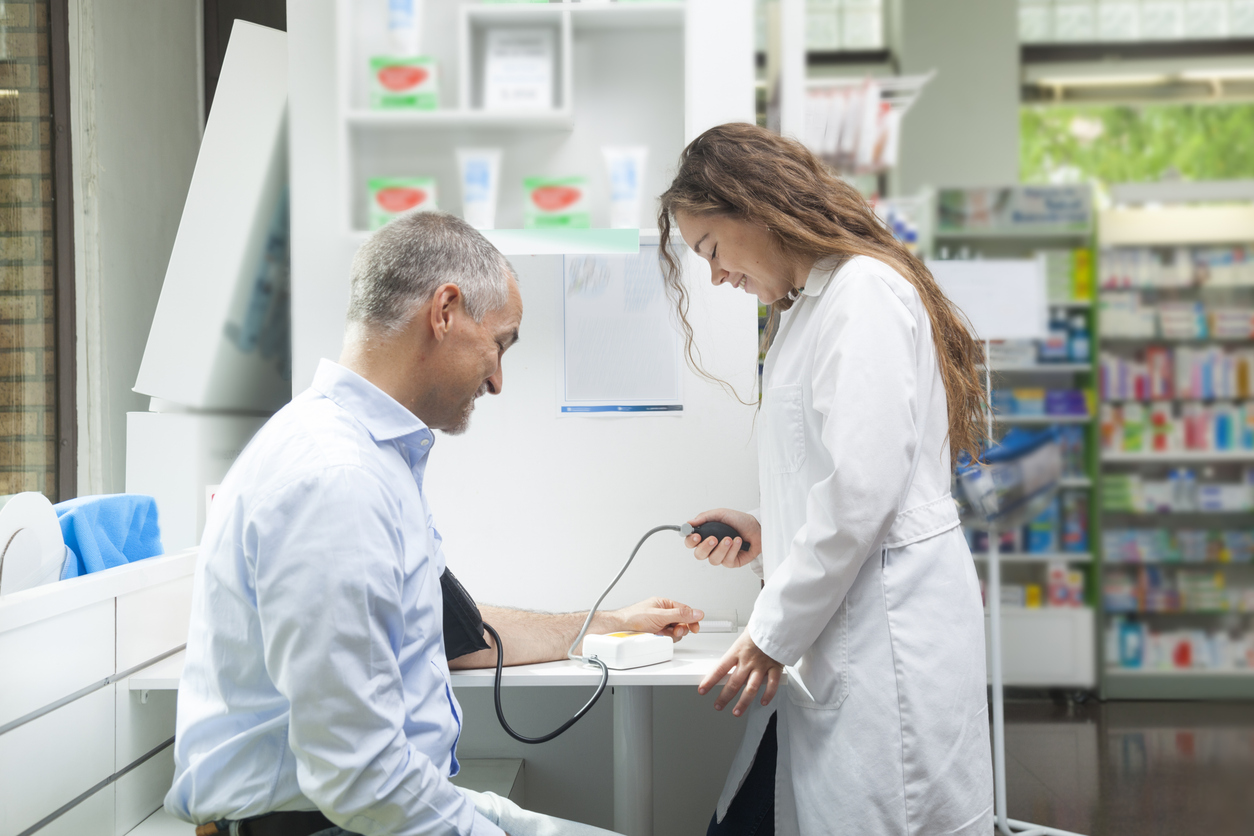Respiratory Consultant Dr Sarah O’Beirne talks to NiPI about the recent WHO report and care delivery in Ireland
A new report from the World Health Organisation (WHO)/Europe and the European Respiratory Society (ERS) has illustrated that chronic obstructive pulmonary disease (COPD) and other chronic respiratory diseases (CRDs) like asthma are vastly underdiagnosed and poorly managed across Europe.

The report is the first of its kind and calls for urgent, coordinated action from policy-makers and healthcare professionals. It also advocates that CRDs be prioritised as part of broader health strategies across Europe.
“This report shows that CRDs, which affect 81.7 million people in the WHO European region, have long been overlooked due to insufficient policy focus and underfunding. This neglect has led to underdiagnosis, misdiagnosis, and incomplete data, costing the region an estimated $21 billion annually,” said Dr Hans Henri P Kluge, WHO Regional Director for Europe.
“To change this, we must strengthen health systems by making care for CRDs a core part of broader strategies for addressing noncommunicable diseases. Prevention is key. This means tackling risks such as smoking, air pollution, and unsafe working conditions. We also need to boost research and innovation, set measurable targets, and invest in data and science.”
Findings from the report indicate that COPD and asthma account for the vast majority of CRD cases in the WHO/Europe region, and that COPD is responsible for 80 per cent of CRD-related mortality. Many cases of CRD are preventable and treatable; however, they remain among the leading drivers of morbidity and mortality in Europe.
The report also demonstrates that diagnostic tools such as spirometry remain limited; delayed referrals and misdiagnoses are common in primary care; and healthcare professionals frequently lack sufficient training to identify CRDs in a timely manner.
Prof Silke Ryan, ERS President, also commented on the report, saying: “We take 22,000 breaths a day, yet respiratory health remains one of the most neglected areas in global health. CRDs are a major, under-recognised cause of death and disability and they demand urgent, collective action. This report is a vital first step towards change. It’s time to shift the mindset and make respiratory health a policy priority across the region.”
Ironically, the report highlights that earlier progress made in respiratory health – and a subsequent decline in CRD mortality – has resulted in reduced funding and surveillance in recent years. Data also show that the impact CRDs currently have on health systems and patients is significantly underestimated and that weak reporting systems may be masking the true burden of disease.
Speaking to Nursing in Practice Ireland (NiPI), Dr Sarah O’Beirne, Consultant Respiratory Physician, St Vincent’s Hospital, Dublin, welcomed the report and its calls for policy-makers and healthcare systems to prioritise respiratory disease.
Commenting on the findings, she said the report “emphasises the need for bold, integrated responses to CRDs such as COPD and the prioritisation of resources to address the disparities in access to diagnostics and treatments for the condition”.
COPD in Ireland
Over 380,000 adults are estimated to be living with COPD in Ireland, and around 15,000 people die from the disease annually. Dr O’Beirne told NiPI that there is indeed “work to do” and challenges exist, but that it is an “exciting and hopeful time” for respiratory patients and clinicians alike in view of ongoing healthcare reform and advances in COPD treatments.
“We’re seeing the roll-out of the model of care, of integrated, community-based care, which is fantastic,” Dr O’Beirne said. “We are really trying to extend and expand services, and give people better access to diagnostics and treatments. This is a huge change from how we have traditionally managed COPD.”
Dr O’Beirne said that a primary goal of current strategies is to tackle undiagnosed COPD, estimating that around 270,000 people in Ireland have undiagnosed disease. She also highlighted that health disparities persist, particularly in rural areas. “We have to reach and diagnose these people and get them on the appropriate treatment,” she said.
Dr O’Beirne told NiPI that “the basics are the things that make a substantial difference” to patient experiences and outcomes, adding that it was vital people had access to essential services like pulmonary rehabilitation, regardless of where they lived or who their primary healthcare provider is. “It’s also important that some subgroups of patients have access to, and receive, therapies that are relevant for their individualised needs, like lung volume reduction procedures and other treatment options,” she added.
Recent and emerging developments
Moving on to discuss the latest evidence supporting the use of “whole new groups of novel drugs”, Dr O’Beirne said that biological agents were “a particularly exciting development” for COPD patients. “We’re seeing promising results for drugs that aren’t available for COPD yet, but are going through the approval process in this country,” she said.
“We’ll see in coming years a whole new group of medications that will be suitable for some patients. It is important to stress that these treatments won’t be appropriate for all people with COPD, but we would hope that a reasonable group of patients would experience real benefits from them.”
Dr O’Beirne also commented on advances in inhaled drug delivery systems for people with COPD, particularly double and triple therapies. She told NiPI that these combination devices have several benefits and that they “simplify treatment for patients” in several ways.
“Many of these drugs are long-acting over 12 or 24 hours. We have an array of devices now that make it possible to personalise treatment for individual people. This gives us more options for drugs and drug delivery for our COPD patients…. It’s been a long time since we’ve had new and improved treatments for COPD. It’s a good time for patients.”
Reducing avoidable risk factors
Tobacco smoke remains the single most avoidable cause of CRDs, according to the WHO report. More than one-quarter of adults still smoke in the WHO European region, which is notably higher than the global average of 20.9 per cent. Uptake of e-cigarettes and heated tobacco products also emerged as a concern from the data and is raising potentially lifelong health risks, including lung disease, the report warns.
Dr O’Beirne agreed that “mounting evidence” now suggests a link between e-cigarettes and negative outcomes for many people and noted that several of the organisations that initially considered these devices may provide a smoking cessation tool have since withdrawn support. “I understand how highly addictive smoking is and how difficult it can be for patients to stop, but I think we can be fairly certain that vaping is not a safe alternative to traditional nicotine replacement,” Dr O’Beirne said.
“People of all ages use these products, but they are being heavily marketed at teenagers and young people, which is particularly concerning. Many clinicians worry about the long-term consequences and have fears of a whole other vape-related epidemic among today’s young people down the line, similar to what we are seeing with cigarette smoking now.”
Integrated, collaborative care
Around the globe, advanced nurse practitioners, nurse specialists, pharmacists, and other members of the multidisciplinary team (MDT) are bringing solutions to some of the issues raised in the report. In view of a global doctor shortage they have also become integral components of integrated respiratory care for COPD patients, and because their roles align with healthcare reforms and policy priorities.
“This is a really good way to deliver care, particularly for chronic disease,” Dr O’Beirne said. “There will be a subgroup of patients, particularly when we see the newer therapies like the biologics becoming available for COPD in the future, who will need care that goes beyond integrated care, but in general, these members of the MDT are very well placed to provide high quality care for chronic conditions like COPD.”
Concluding, Dr O’Beirne reinforced her hope for the future of COPD care in Ireland and her delight at the WHO report’s recommendation that CRDs be prioritised across Europe. “There’s plenty to be done, but the vision is certainly there,” she said.













Leave a Reply
You must be logged in to post a comment.